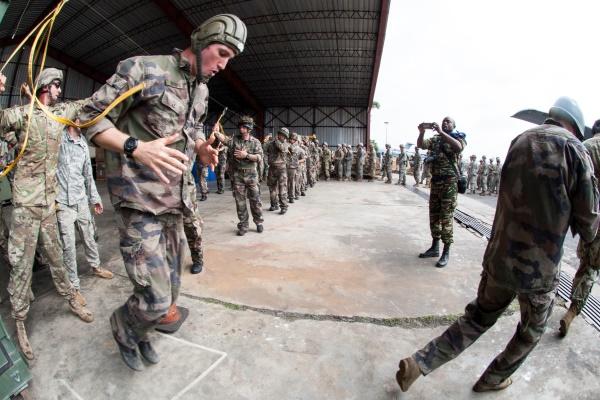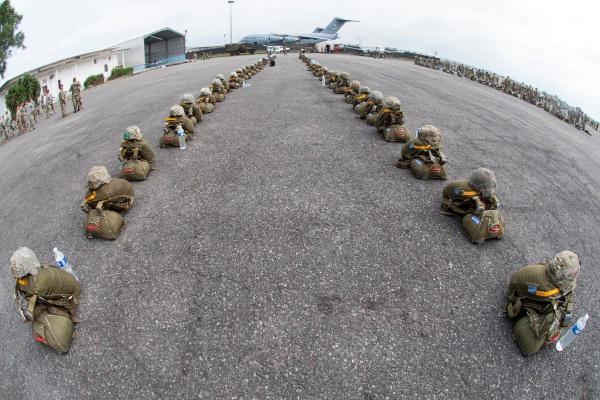About 200 U.S. paratroopers recently got the chance to train with French and Gabonese paratroopers in Central Accord 2016, a multinational training exercise on the western coast of Africa.
Army Col. J. Patrick Work, commander of the 2nd Brigade Combat Team, 82nd Airborne Division, described the exercise as a unique training opportunity for his paratroopers.
They deployed to Gabon, Africa, from Fort Bragg, North Carolina, flying in two Air Force C-17 Globemaster aircraft. During the flight, they worked on pre-mission planning and conducted in-flight parachute rigging.
On arrival, approximately 110 paratroopers conducted a parachute assault training exercise into Gabon, where they eventually linked up French and Gabonese paratroopers.
"Central Accord was an excellent opportunity for our paratroopers to collaborate with the partners that we were working with," Work told group of defense reporters at a June 20 round-table discussion.
During Central Accord, about 50 paratroopers attended a jungle warfare school run by French forces. Then about 300 French, Gabonese and American paratroopers conducted two multinational airborne operations together, Work said.
"All this training allowed our team to build relationships with the French expeditionary forces and the Gabonese forces," Work said.
"It takes a lot of preparation; it takes small unit leaders coming up with their own sort of planning process and working through the friction associated with the language, the different equipment, the requirements that ensure we do it safely -- that's a pretty extraordinary feat. And it happened with a number of small unit leaders just taking initiative and solving problems."
Multinational training exercises like Central Accord give units gave paratroopers from difference countries the chance to "prove that we can use each other's equipment; we have proved that we can execute as one fighting force in the conditions that we set for ourselves over there," Work said.
"To win in an uncertain world, it's important that we train in these unfamiliar and complex environments," he said. "It exposed our young leaders to solving problems developing their own planning processes their own operating process with Gabonese and French partners. That is very difficult to replicate at home station."
--Matthew Cox can be reached at matthew.cox@military.com.






























